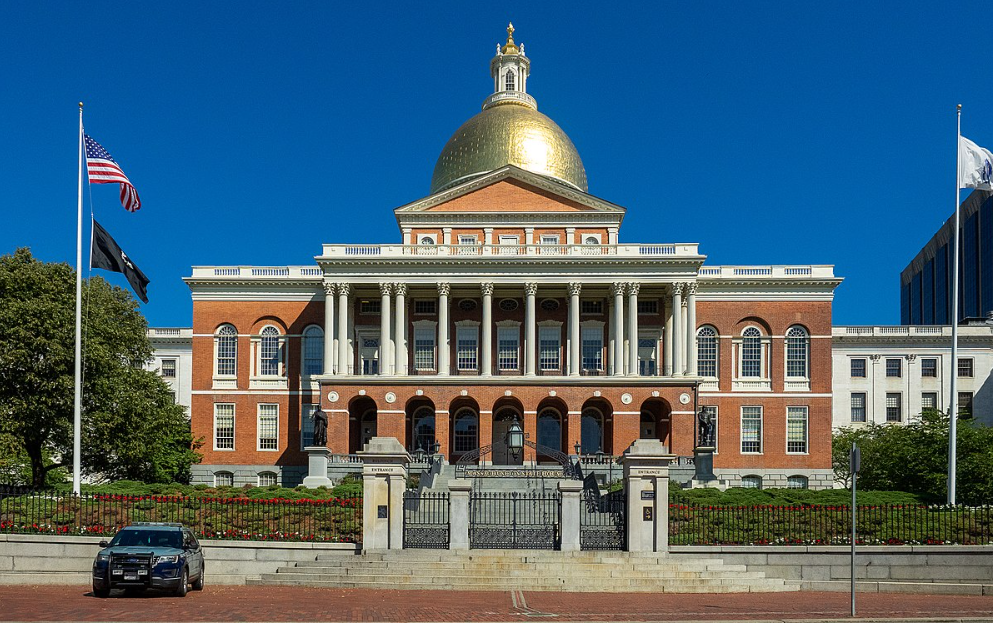The University of Massachusetts will host the 100th year anniversary of “The Souls of Black Folk” by W.E.B DuBois, with an exhibit and a series of events.
The exhibit is located on the 25th floor of the W.E.B Du Bois Library, and will be on display until May 9. It includes history, photographs, original handwritten pages of “The Souls of Black Folk,” and letters to DuBois by readers of his work.
“People wrote to him about all kinds of issues: busing, education for young children, all kinds of issues,” Bill Thompson, head of the Special Collections and Archives at UMass, said.
On Wednesday, April 30, Professor Robert Paynter of the department of anthropology will conduct a tour of the DuBois home in Great Barrington.
“Bob Paynter, who’s in the Anthropology Department here, led a dig there a number of years ago. He’s going to be leading a tour of the home site. There’s no building there, but they’re going to tour the site,” Thompson said.
The foundation of DuBois’ home is a landmark because of DuBois’s importance in Civil Rights.
“Now where the home site was, which is now only a foundation, has been declared a national landmark,” Thompson said.
A presentation will be held on May 1, from 10 a.m. to noon, at the Campus Center, room 163C. The exhibition will include speeches from Professor Esther Terry of the W.E.B. Du Bois Department of Afro-American Studies, Professor Phil Zuckerman of Pitzer College, Professor David Blight of the Department of History at Amherst College, Professor Ernest Allen of the W.E.B. DuBois Department of Afro-American Studies, and Professor Gerald Friedman of the Department of Economics.
“We’re going to have talks on education, on reconstruction, on religion, and economics by professors from here at the University and one at Amherst College,” Thompson said.
Horace Clarence Boyer and the Jubilee Four will be performing the Sorrow Songs. These songs are written in the beginning of each chapter in “The Souls of Black Folk.”
“They are going to be singing some of the sorrow songs,” Thompson said. “[Boyer] … has taken the music at the beginning of each chapter and has been able to determine what the song is that goes with it.”
Professor John Edgar Wideman, Department of English, was chosen to be the keynote speaker.
“John Edgar Wideman is going to be the keynote speaker, he’s an English professor here, a novelist, an essayist, and he’s also written an introduction to an edition of ‘The Souls of Black Folk,'” Thompson said.
After the formal presentation, there will be a belated birthday celebration for DuBois.
“I hope the students come,” Thompson said. “I think there is a lot for everyone to get out of it. It’s going to be a lot of fun as well as informative.”
“The Souls of Black Folk” is seen by some to have inspired the confidence for African American’s to pursue civil rights.
“People see this as a document that sort of changed history, it changed the course of African American Civil Rights,” Melissa Watterworth, Technical Archivist at the Special Collection and Archives, said. “It made people sit up and have pride in their history. It made people think that the history of African Americans is different than other Americans.”
Avid readers of the book felt that it is more than a civil rights debate between Booker T. Washington and DuBois.
“There is a chapter in “The Souls of Blacks Folk” that talks about his opinions that differ from Booker T. Washington,” Watterworth said. “A lot of times when people read “The Souls of Black Folk” that’s what they think is the primary focus of the book. It’s actually a variety of topics talked about in the book: autobiographical things as well as civil rights and the poverty condition.”
DuBois was the first black man to receive a degree from Harvard. Between 1888-1892 he received a baccalaureate degree in philosophy and a masters degree in History.
“He’s best known for getting a degree from Harvard,” Thompson said
DuBois is seen by some to be one of the founding fathers of the civil rights movement.
“Civil Rights, that was his primary focus most of his life,” Watterworth said. “He started the Niagara Movement – which eventually became the NAACP.”






